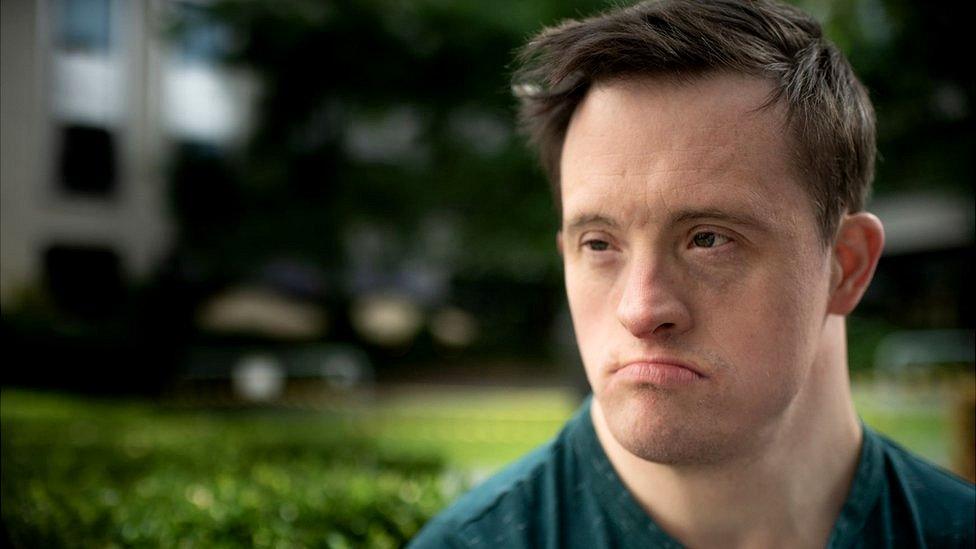Early deaths of people with learning disabilities 'shocking'
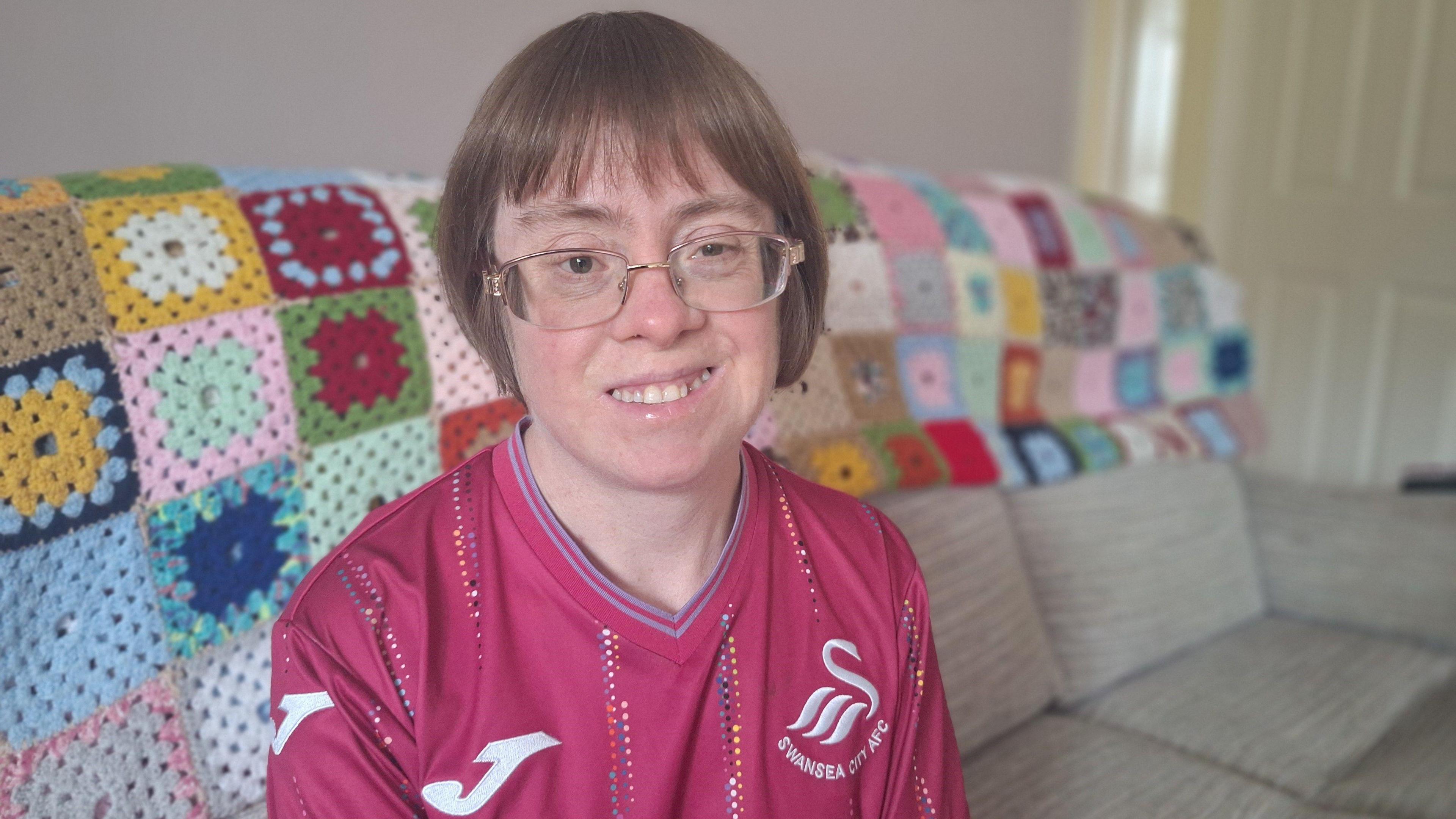
Sara Pickard says good communication is key to decent healthcare for people with learning disabilities
- Published
Not enough is being done to prevent the early deaths of people with learning disabilities, campaigners have said.
Generally, people with learning disabilities die 20 years younger than those without learning disabilities and about 39% of deaths are avoidable, according to mortality reports.
Sara Pickard, a community councillor who has Down's syndrome, said the number of avoidable deaths and the difference in life expectancy was shocking.
The Welsh government said it had an action plan to tackle inequalities and reduce avoidable and premature deaths of people with learning disabilities.
For an easy English version of this article, click here
Ms Pickard, 41, who also works for Mencap Cymru, said having Down's syndrome was like a hurdles race.
"Hurdles come up in life and I'm jumping over each one in turn, achieving what I want to achieve and nothing is going to stop me," she said.
Ms Pickard, from Cardiff, said her experiences of healthcare were generally good, but she knew that was not the case for everyone with a learning disability, adding some of her friends with learning disabilities had died premature deaths.
"One was younger than me. It's really sad to think," she said.
Adults with learning disabilities die 20 years early, report finds
- Published2 September
'Awareness is needed to stop deaths like my son's'
- Published3 September
Ms Pickard said people in power needed to properly engage with people with learning disabilities.
Last year, a report was published , externalwhich showed the most common age of death for people with learning disabilities was 67, two decades earlier than the most common age of death for the wider population.
Another report in England, external showed 39% of deaths in the learning disability community were avoidable, meaning they could still be alive if they had received the right care.
People with learning disabilities are now entitled to annual health checks from their GP, in the hope any illnesses can be picked up quickly.
"Annual health checks are great but at the same time, it can seem a tick box exercise," Ms Pickard said.
She said reasonable adjustments in healthcare settings, including learning disability liaison nurses, helped.
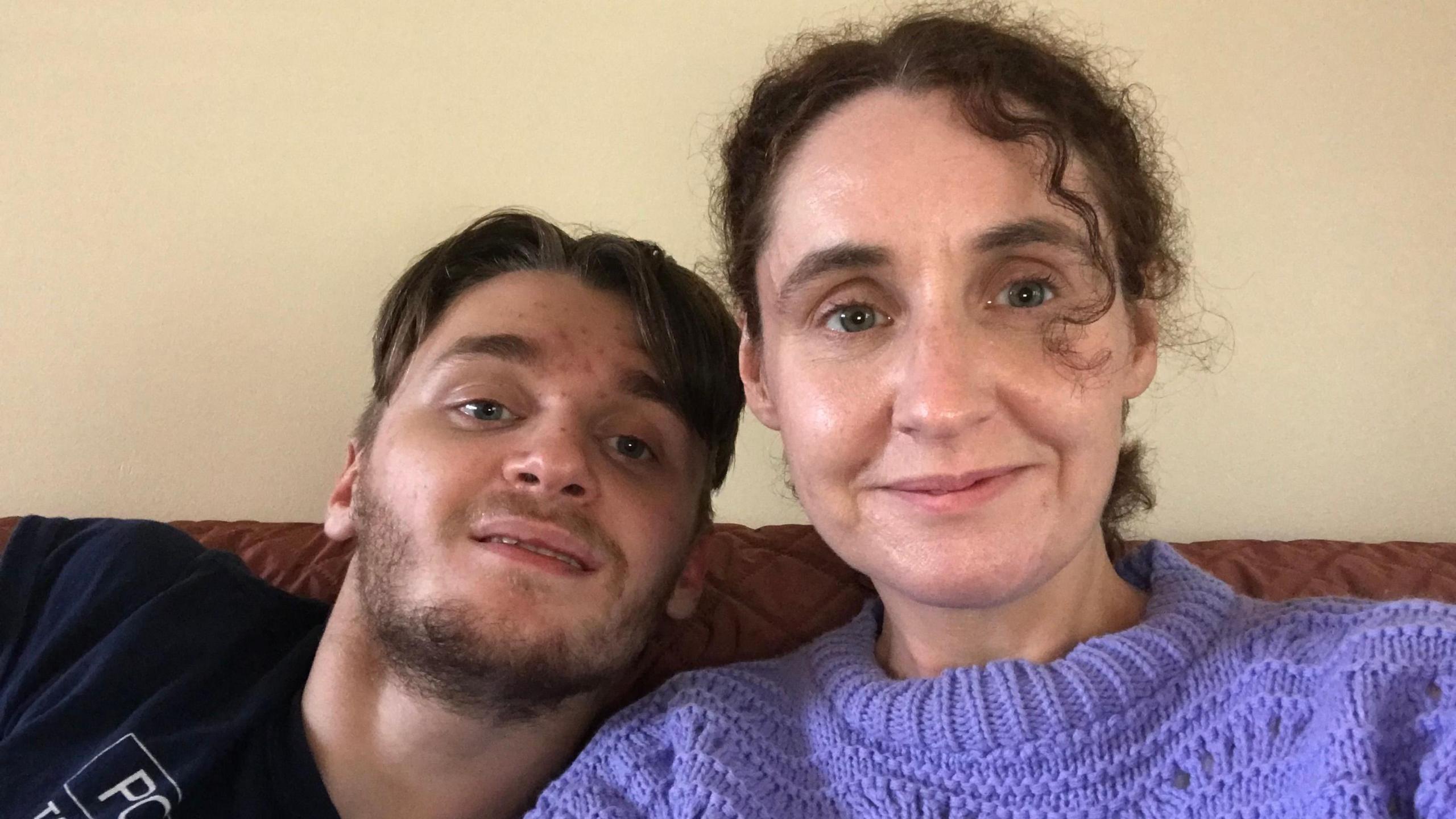
Dr Dawn Cavanagh, pictured with her son Jack, says people with learning disabilities are being "deeply wronged"
Academic and campaigner, Dr Dawn Cavanagh, knows how devastating it can be when things go wrong for people with learning disabilities.
Her son Jack, 22, has a severe learning disability and lives in residential care.
"He's really fun, cheeky and great but in terms of looking after his health, he needs support," Dr Cavanagh said.
On one occasion Jack became really ill.
Dr Cavanagh said her concerns were dismissed and it took three weeks before he was finally taken to hospital.
"By the time he got there, his appendix was completely burst, he had a blocked bowel, it was twisted. He was in a real mess," she said.
Dr Cavanagh said Jack was now fine, but it took him a long time to recover both physically and psychologically.
She said professionals looked at Jack's behaviour rather than his symptoms - something known as diagnostic overshadowing - which meant there was a delay in getting appropriate help.
'Ashamed of society'
Dr Cavanagh said there was an unacceptable indifference towards the lives of people with learning disabilities.
Despite numerous reviews and scandals over the years, she said nothing had changed and there was no accountability.
"What that tells me as an academic and as a mother, is that my son's health and life doesn't matter, which is a very painful conclusion," she said.
"This is a group of people who are being deeply wronged.
"It makes me ashamed of the society in which I live."
In 2019-20 Dr Cavanagh researched how effective the annual health checks were for people with learning disabilities.
"Of the 12 people I interviewed, two have already passed away and they were in their 50s," she said.
"That tells us something, doesn't it? Could that have been avoided? Potentially."
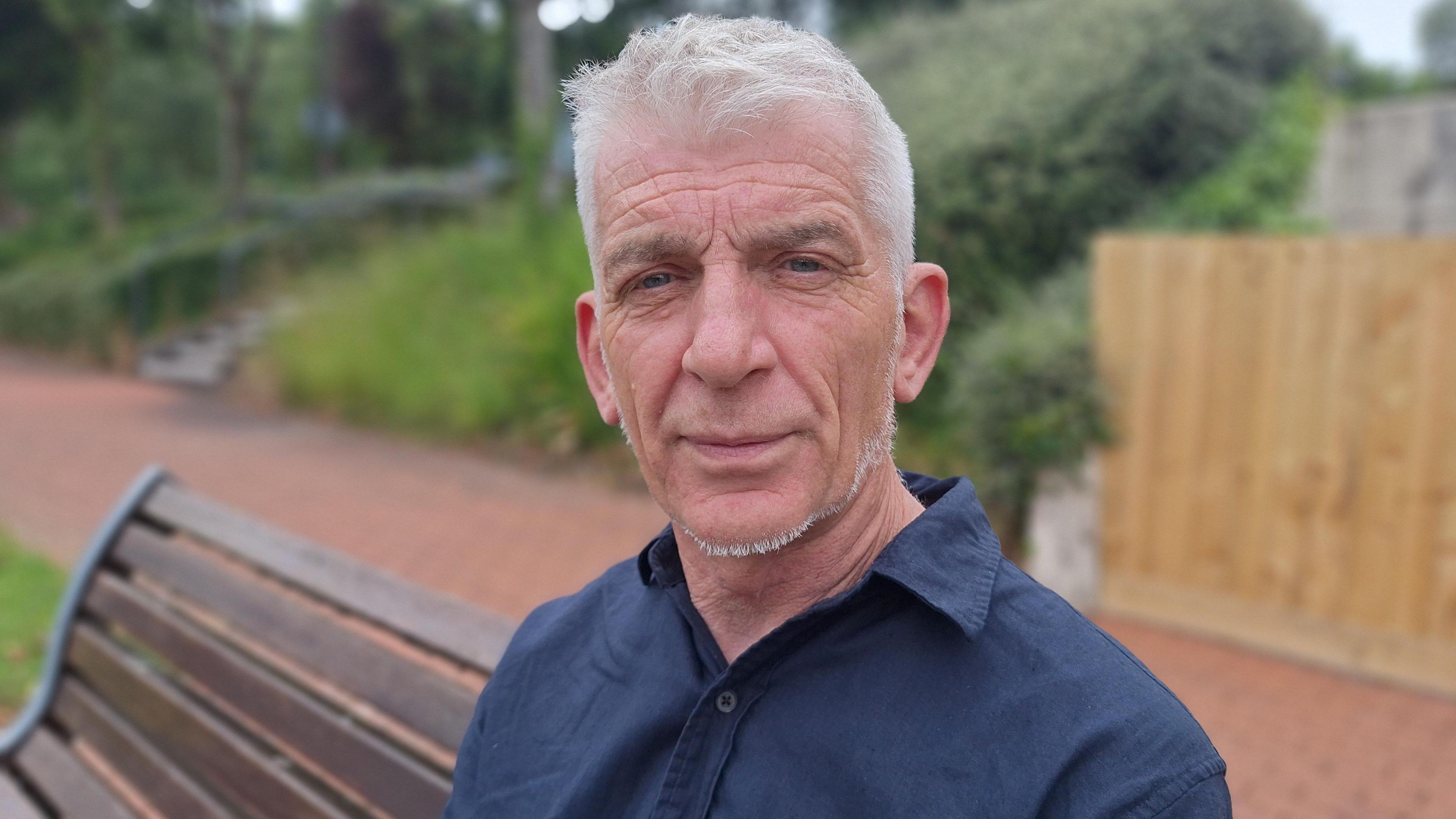
Stuart Todd is a professor of intellectual disability research at the University of South Wales
Stuart Todd is a professor of intellectual disability research at the University of South Wales.
He said he felt profoundly sad about the number of people who died premature deaths.
Some improvements had been made in primary care, he said, but it was not enough.
"What happens in hospitals? What happens when people present in A&E and what adjustments are being made to make that a meaningful and effective interaction for people? There's a lot less said about that," he said.
He said a strategy was needed to ensure primary and secondary care were connected and all levels of the health sector were accessible to people with learning disabilities.
Prof Todd is working on new research, external about end of life care for adults with learning disabilities.
He said current research suggested people with learning disabilities were dying from conditions not usually seen as life threatening, which meant many died without access to the appropriate care.
The Welsh government said it had an action plan to tackle health inequalities and reduce avoidable and premature deaths of people with learning disabilities, saying it had rollout out learning disability training across the NHS workforce since 2022.
"We remain committed to understanding and supporting the specific health and care needs of people with learning disabilities," it said.
It said policy and strategy development was shaped by people with lived experience who contributed directly to the ministerial advisory group.
Related topics
- Published27 September 2024
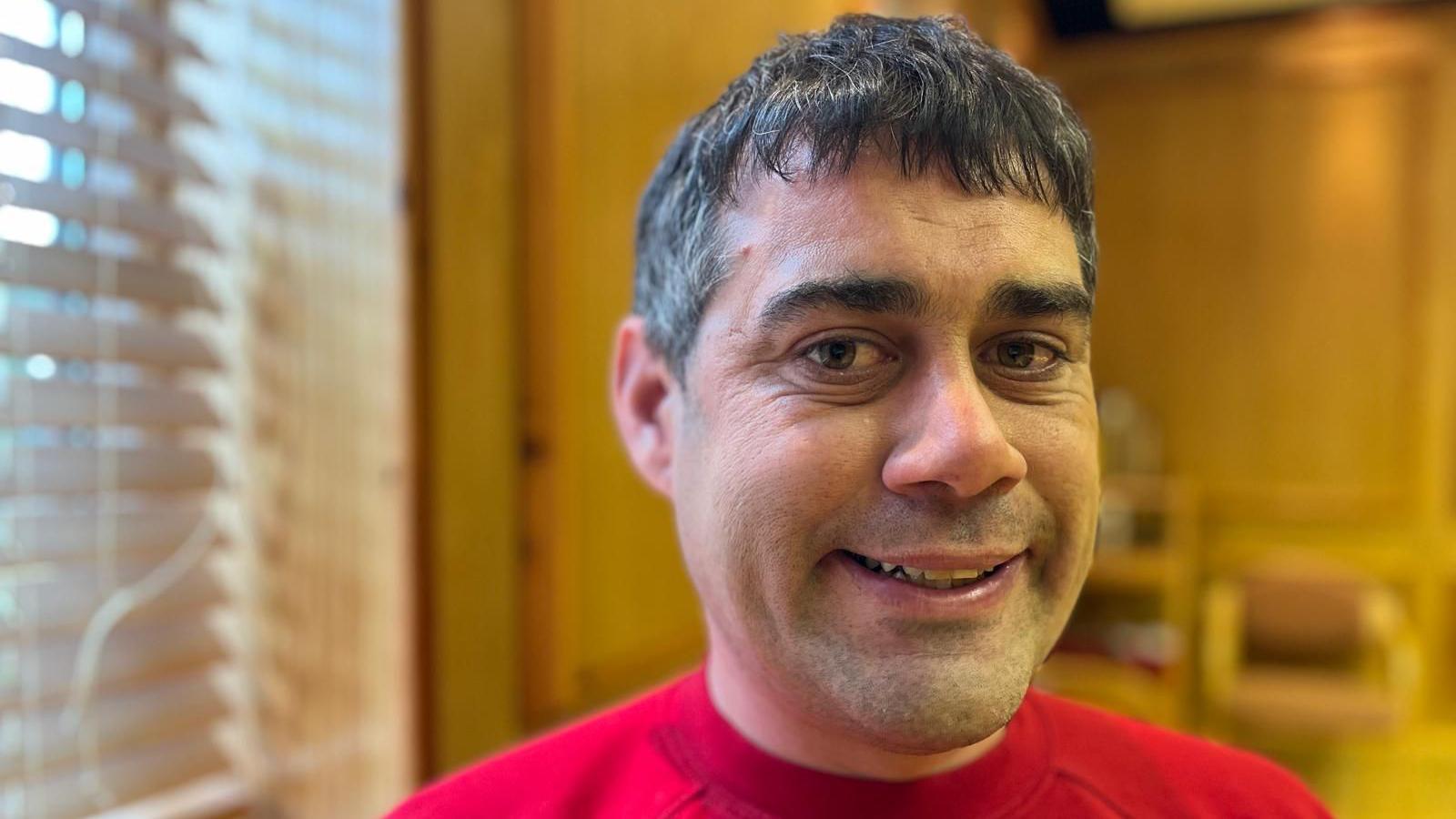
- Published10 October 2022
